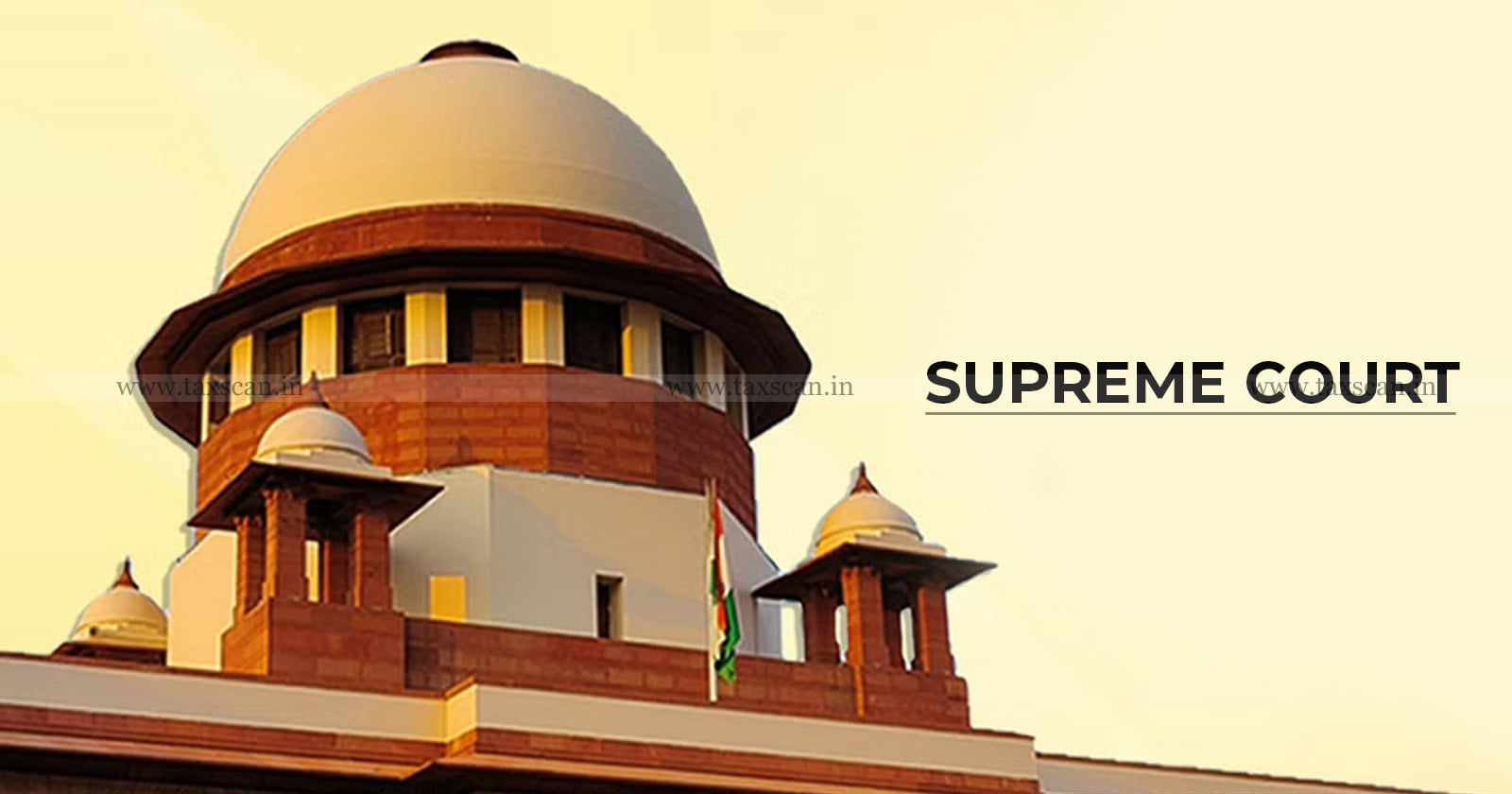Special Court Presided By Sessions Judge Has Jurisdiction to Hear Offences Under Insolvency Bankruptcy Code: Supreme Court
It was held that the High Court had grossly erred in quashing the complaint only on the ground that it was filed before a Special Court presided by a Sessions Judge.

Supreme Court – insolvency and bankruptcy – IBC – Section 435 – Section 236 – TAXSCAN
Supreme Court – insolvency and bankruptcy – IBC – Section 435 – Section 236 – TAXSCAN
The Supreme Court has held that a Special Court presided by a Sessions Judge or Additional Sessions Judge has the jurisdiction to hear offences under the Insolvency and Bankruptcy Code. The Court held that the provision of Section 435 of the Companies Act, 2013 with regard to Special Court would become a part of Section 236(1) of the Code as of the date of its enactment.
The impugned order was passed on February 14, 2022, wherein it was observed that the objective of the legislature was not to burden a special court comprising a sessions judge with trials under the IBC. The High Court ruling came on a plea filed by two individuals assailing a sessions court order issuing summons to them following a complaint filed by the Insolvency and Bankruptcy Board of India ( IBBI ), a statutory body under the IBC.
The petition before the High Court stated that the sessions judge did not have the jurisdiction to entertain the complaint filed by the IBBI. It noted that as per Section 236 of the IBC, special courts under the Companies Act were empowered to try offences under the IBC as a court of sessions. The petitioners argued that the objective behind Section 236 was a speedy trial of offences, and to achieve the same, two classes of special courts were introduced: one consisting of a judge holding office as sessions or additional sessions judge; and another consisting of metropolitan or judicial magistrate.
With these observations, the High Court concluded that the proceedings initiated by the IBBI in the sessions court were not sustainable. The order issuing process against the petitioners was held as being without jurisdiction, unsustainable, and hence quashed.
The Apex Court, disagreeing with the view taken by the High Court, observed that, "If the legislative intent was to give effect to the subsequent amendments in the Companies Act to Section 236(1) of the Code, nothing prevented the legislature from amending Section 236(1) of the Code. The legislature having not done that, the provision with regard to the reference in Section 236(1) of the Code pertaining to Special Court as mentioned in Section 435 of the Companies Act, 2013 stood frozen as on the date of enactment of the Code. As such, the learned Judge of the High Court has erred in holding that in view of the subsequent amendment, the offences under the Code shall be tried only by a Metropolitan Magistrate or a Judicial Magistrate of the First Class.
The two judge Bench of Justice BR Gavai and Justice Sandeep Mehta observed that, "It is held that the Special Court presided by a Sessions Judge or an Additional Sessions Judge will have jurisdiction to try the complaint under the Code. However, since the learned single judge of the High Court has not considered the merits of the matter, the matter is remitted to the learned single judge of the High Court for considering the petition of the respondents afresh on merits."
It was held that the High Court had grossly erred in quashing the complaint only on the ground that it was filed before a Special Court presided by a Sessions Judge. The appeal was allowed, and the matter was remitted to the High Court for considering the petition on merits.
To Read the full text of the Order CLICK HERE
Support our journalism by subscribing to Taxscan premium. Follow us on Telegram for quick updates


